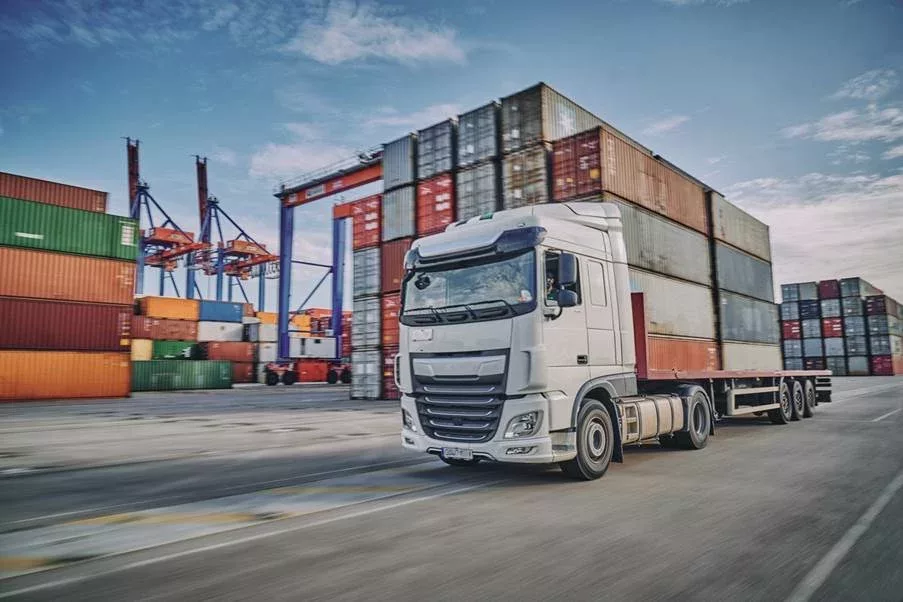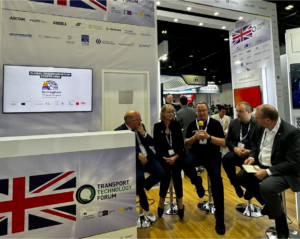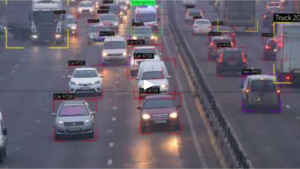Location data and technology platform HERE has unveiled insights from its latest global ‘On the Move’ survey developed in part with Amazon Web Services.
The survey has found what researchers call a significant gap in the adoption of basic data analytics and Artificial Intelligence (AI), along with a lack of sustainability goals and progress toward achieving real-time supply chain visibility, among transportation and logistics (T&L) companies in the United Kingdom and around the world.
According to the survey conducted by YouGov, only 50% of logistics firms in the UK are utilising basic data analytics. This contrasts with 41% of respondents in Germany and 63% in the US.
Continuing with AI, only 19%t of UK organisations are deploying it in areas such as demand forecasting. HERE says this “underscores the untapped potential of AI” – from using machine learning to fine tuning algorithms for fleet route optimisation – to modernising logistics operations, streamline processes, and inform strategic decision-making.
While the study highlights the lack of AI utilisation, it also identifies barriers to general data technology implementation. Cost emerges as the primary obstacle hindering widespread adoption, according to 26% of logistics professionals in the UK, while 13% of respondents cite a lack of internal expertise and/or resources as a barrier. In the US. and Germany, a majority of logistics professionals express concerns about potential disruptions to current processes and services. When adopting new technologies, 76% of UK companies say they would rather approach external providers who have readily available solutions, instead of developing capabilities in-house.
Despite a global emphasis on sustainable practices, the study suggests a significant gap in the prioritisation of sustainability among logistics companies in the UK.
More than 60% of UK logistics professionals cite their operations as not currently having defined sustainability goals tailored to their T&L operations, with 33% having no plans to define such goals either.
Sustainability was ranked as the least important out of seven end-to-end supply chain and logistics management considerations in the UK, placed in seventh place by 24% of organisations. While US respondents focused primarily on drivers’ safety, T&L professionals in the UK prioritised improving customer satisfaction.
The HERE Technologies and AWS study reveals that over two-thirds of T&L professionals surveyed the UK (72%) and US (68%) believe their company is making some progress toward achieving real-time supply chain visibility. However, less than one in four respondents across each country believe their operations have made ‘significant’ progress.
Full, end-to-end supply chain visibility is hard to achieve. Consistent across all countries surveyed, T&L professionals indicate ocean freight is the mode of transportation providing the least amount of real-time visibility. Conversely, respondents in each country cited truck operations as having the highest amount of real-time visibility in their supply chain. Professionals in all regions placed real-time tracking and route optimisation as their number one and two most valued capabilities to improve their supply chain visibility.
Although improving driver routing remains a top priority for respondents, the survey reveals that logistics businesses in the UK are not fully leveraging location data. Among UK organisations, 41 percent now use location technology for driver routing, and 30 percent use it to improve on-time deliveries, but less than a third of logistics firms (28%) use this location data to optimise route planning and transport logistics.
“On one hand, this study shows the progress being made by companies towards increasing their supply chain visibility. On the other hand, it’s clear the industry currently lacks the contextual data, AI capabilities and tools needed to optimize fleet deployments, routing, and appropriate mode switching,” said Remco Timmer, Vice President of Product Management at HERE Technologies. “As a result, we’re seeing increased demand for location data and services that enable logistics companies to overcome disruptions in real-time while reducing emissions and improving employee safety in the process.”
(Picture – HERE)

























